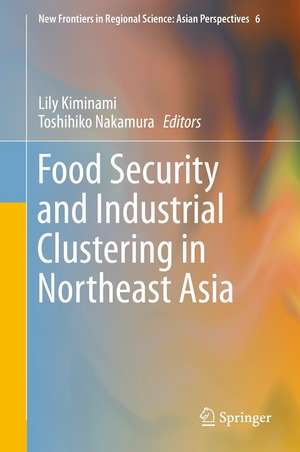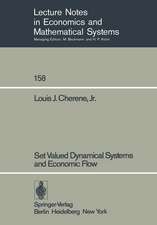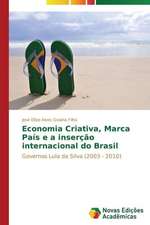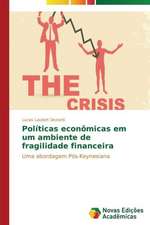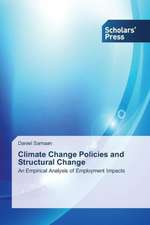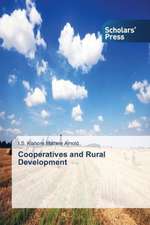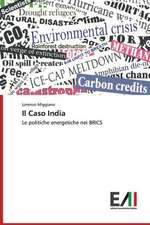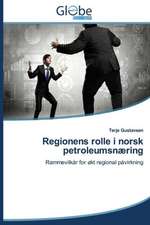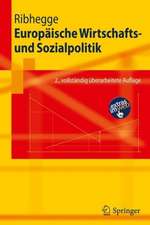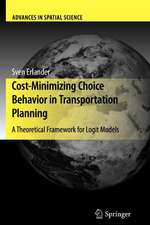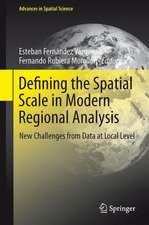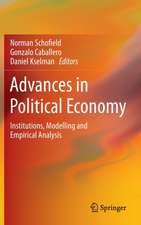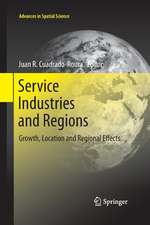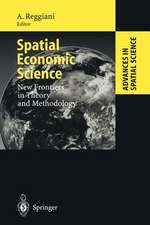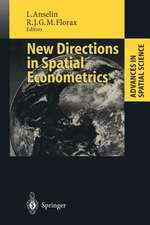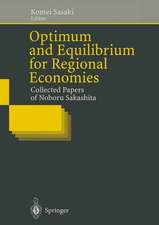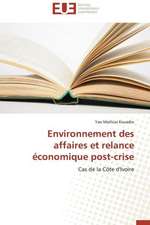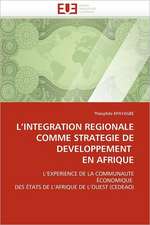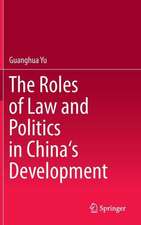Food Security and Industrial Clustering in Northeast Asia: New Frontiers in Regional Science: Asian Perspectives, cartea 6
Editat de Lily Kiminami, Toshihiko Nakamuraen Limba Engleză Hardback – 5 oct 2015
| Toate formatele și edițiile | Preț | Express |
|---|---|---|
| Paperback (1) | 388.13 lei 6-8 săpt. | |
| Springer – 23 aug 2016 | 388.13 lei 6-8 săpt. | |
| Hardback (1) | 395.47 lei 6-8 săpt. | |
| Springer – 5 oct 2015 | 395.47 lei 6-8 săpt. |
Din seria New Frontiers in Regional Science: Asian Perspectives
- 15%
 Preț: 652.64 lei
Preț: 652.64 lei - 18%
 Preț: 742.00 lei
Preț: 742.00 lei - 15%
 Preț: 645.96 lei
Preț: 645.96 lei - 18%
 Preț: 798.18 lei
Preț: 798.18 lei - 18%
 Preț: 728.74 lei
Preț: 728.74 lei - 18%
 Preț: 724.14 lei
Preț: 724.14 lei - 18%
 Preț: 733.33 lei
Preț: 733.33 lei - 15%
 Preț: 693.25 lei
Preț: 693.25 lei - 15%
 Preț: 640.06 lei
Preț: 640.06 lei - 15%
 Preț: 702.87 lei
Preț: 702.87 lei - 15%
 Preț: 718.61 lei
Preț: 718.61 lei - 18%
 Preț: 786.36 lei
Preț: 786.36 lei - 18%
 Preț: 1110.72 lei
Preț: 1110.72 lei - 15%
 Preț: 644.18 lei
Preț: 644.18 lei - 18%
 Preț: 787.78 lei
Preț: 787.78 lei - 15%
 Preț: 699.45 lei
Preț: 699.45 lei - 18%
 Preț: 897.47 lei
Preț: 897.47 lei - 15%
 Preț: 643.34 lei
Preț: 643.34 lei -
 Preț: 395.25 lei
Preț: 395.25 lei - 18%
 Preț: 892.42 lei
Preț: 892.42 lei -
 Preț: 386.39 lei
Preț: 386.39 lei - 24%
 Preț: 594.43 lei
Preț: 594.43 lei - 18%
 Preț: 900.31 lei
Preț: 900.31 lei - 15%
 Preț: 714.02 lei
Preț: 714.02 lei - 15%
 Preț: 698.62 lei
Preț: 698.62 lei - 24%
 Preț: 632.82 lei
Preț: 632.82 lei - 18%
 Preț: 1244.59 lei
Preț: 1244.59 lei - 15%
 Preț: 644.63 lei
Preț: 644.63 lei - 18%
 Preț: 785.42 lei
Preț: 785.42 lei - 15%
 Preț: 639.73 lei
Preț: 639.73 lei -
 Preț: 357.81 lei
Preț: 357.81 lei - 18%
 Preț: 1111.53 lei
Preț: 1111.53 lei - 18%
 Preț: 721.33 lei
Preț: 721.33 lei
Preț: 395.47 lei
Nou
Puncte Express: 593
Preț estimativ în valută:
75.68€ • 82.18$ • 63.57£
75.68€ • 82.18$ • 63.57£
Carte tipărită la comandă
Livrare economică 22 aprilie-06 mai
Preluare comenzi: 021 569.72.76
Specificații
ISBN-13: 9784431552819
ISBN-10: 4431552812
Pagini: 250
Ilustrații: XII, 282 p.
Dimensiuni: 155 x 235 x 22 mm
Greutate: 0.59 kg
Ediția:1st ed. 2016
Editura: Springer
Colecția Springer
Seria New Frontiers in Regional Science: Asian Perspectives
Locul publicării:Tokyo, Japan
ISBN-10: 4431552812
Pagini: 250
Ilustrații: XII, 282 p.
Dimensiuni: 155 x 235 x 22 mm
Greutate: 0.59 kg
Ediția:1st ed. 2016
Editura: Springer
Colecția Springer
Seria New Frontiers in Regional Science: Asian Perspectives
Locul publicării:Tokyo, Japan
Public țintă
ResearchCuprins
1 Food Security and Collaborative Advantage: Scoping the scene (Kiminami, Lily).- Part I Food Security from the Asian Perspective.- 2 Defining Japan's Food Security in East Asia: From the perspectives of the distribution revolution, environmental degradation, and international cooperation (Hara, Yonosuke).- 3 The Current Position and Future Direction of Agriculture in Northeast Asia (Shogenji, Shin-ichi).- 4 Analysis of China’s Food Supply and Demand Balance and Food Security (Chen, Yongfu and Nie, Fengying).- 5 Korea’s Food Security Schemes (Lee, Jaehyeon).- Part II Food Clustering in Northeast Asia.- 6 The Food System based on Agriculture: Food collaboration (Saito, Osamu).- 7 The Network Structure of a Soybean Cluster in Hokkaido (Morishima, Teruya).- 8 Competitive Advantages of Green Tea Clusters in Japan (Akune, Yuko).- 9 Food and Health-Related Industry Clustering in Niigata Prefecture:Empirical analysis on the cognitive aspects of corporations (Kiminami, Lily and Furuzawa, Shinichi).- 10 Agricultural Industry Clusters in China (Kiminami, Lily and Kiminami, Akira).- 11 Industrial Agglomeration of the Food Industry in China: An analysis of data by province(Yagi, Hironori).- 12 The Agricultural Industrialization of China’s Heilongjiang Province (Jiao, Jiang).- 13 Agricultural Production and Related Business by Public Firms: A case study on Xinhua Farm, Heilongjiang (Yagi, Hironri and Zhu, Yonghao).- 14 Promotion Policies for Food Industry Cluster in Korea (Lee, Byung-Oh).- 15 The Trends and Potential for Food Industry Clusters in Korea (Lee, Jaehyeon).- 16 The Promotion of and Challenges for the Agricultural Senary Industrialization Policy in the Republic of Korea(Lee, Youkyung).- Part III Food Clustering in EU and North America.- 17 Cluster Initiatives in Eastern Poland: Good practices in agriculture and food-processing industry(Bojar, Ewa, Bojar, Matylda and Bojar, Wiktor).- 18 Main Factors Affecting Food Industry Clustering in France (Ben Arfa, Nejla, and Daniel, Karine).- 19 Industrial Cluster Analysis, Entrepreneurship and Regional Economic Development(Stough, Roger R. and Yu, Junbo).
Textul de pe ultima copertă
This book integrates diversified methodologies of area studies, regional economic development, regional science, and related fields to draw up a strategy for forming the “regional food industrial cluster” in Northeast Asia. This is done by assigning “innovation” to a core concept, with the basic problem of food security as the horizontal axis and the areas of Northeast Asia as the vertical axis. Specifically, the principle of “collaborative advantage” as a key factor is extracted from case studies on food industrial clustering in each area. As a final objective, a practical policy recommendation is presented while the theorization of the industrial cluster is developed. Therefore it is also a challenge to the old and new issue of food security which has been argued until now.
Caracteristici
Clarifies the characteristics of regional development in Northeast Asia centering on food security in local, national, regional and global dimensions Integrates diversified existing principles, disciplines, research approaches and methodologies in case studies of food clustering in Northeast Asian regions Provides materials, methods, ideas and theories for understanding the issue of food security in Northeast Asia and new approaches to the challenges of food clustering
